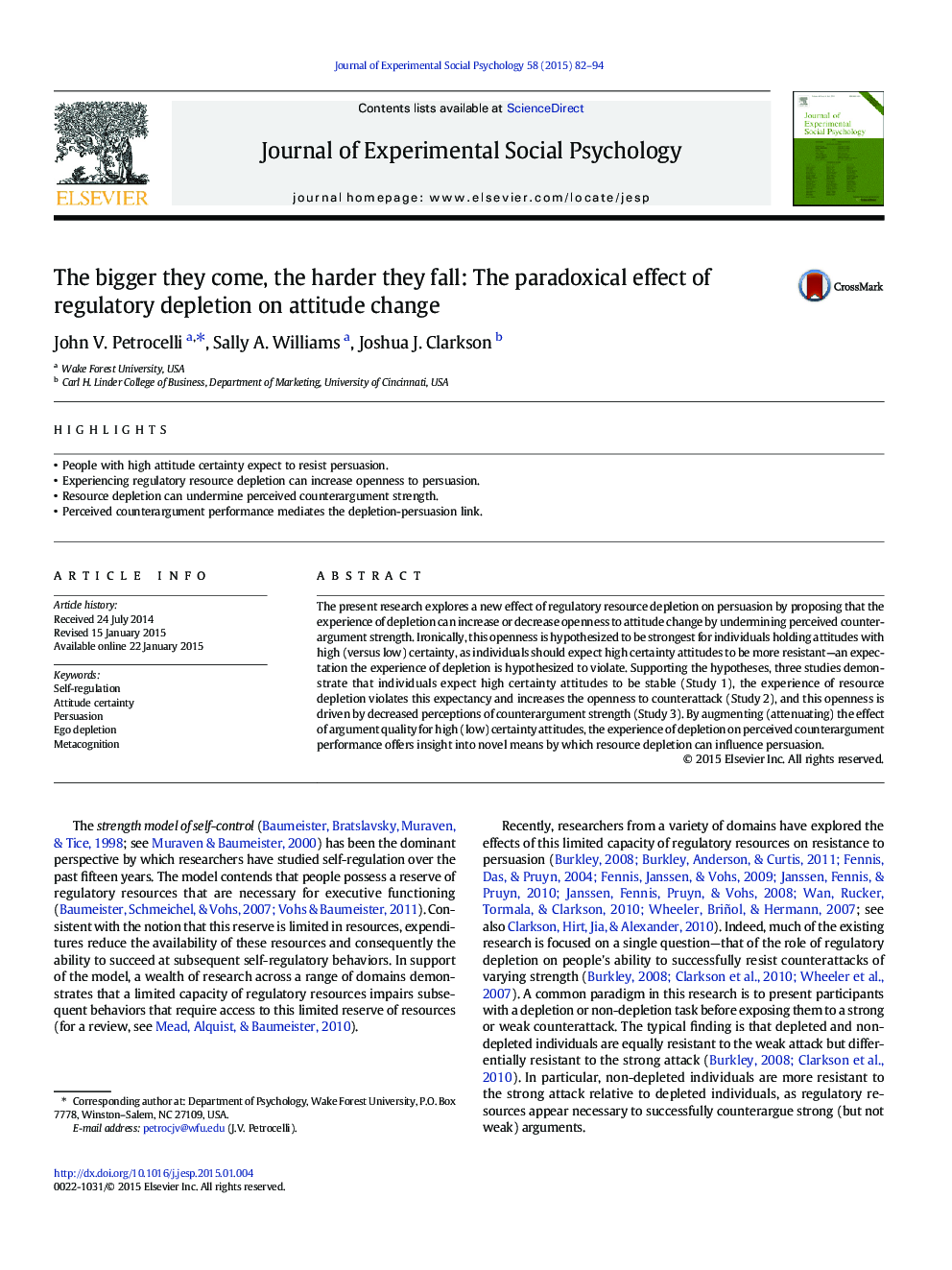| Article ID | Journal | Published Year | Pages | File Type |
|---|---|---|---|---|
| 7324680 | Journal of Experimental Social Psychology | 2015 | 13 Pages |
Abstract
The present research explores a new effect of regulatory resource depletion on persuasion by proposing that the experience of depletion can increase or decrease openness to attitude change by undermining perceived counterargument strength. Ironically, this openness is hypothesized to be strongest for individuals holding attitudes with high (versus low) certainty, as individuals should expect high certainty attitudes to be more resistant-an expectation the experience of depletion is hypothesized to violate. Supporting the hypotheses, three studies demonstrate that individuals expect high certainty attitudes to be stable (Study 1), the experience of resource depletion violates this expectancy and increases the openness to counterattack (Study 2), and this openness is driven by decreased perceptions of counterargument strength (Study 3). By augmenting (attenuating) the effect of argument quality for high (low) certainty attitudes, the experience of depletion on perceived counterargument performance offers insight into novel means by which resource depletion can influence persuasion.
Related Topics
Life Sciences
Neuroscience
Behavioral Neuroscience
Authors
John V. Petrocelli, Sally A. Williams, Joshua J. Clarkson,
